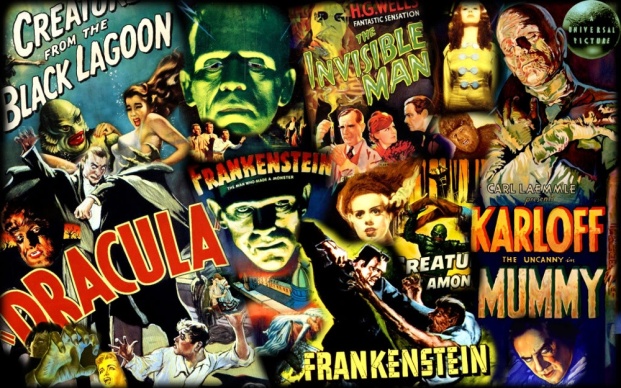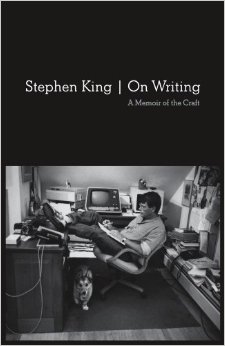
“Now who are you?” the production manager asked.
Mike Lizaraga had just joined the set of his first film where a crew of about 50 people prepared to bring the characters from one of his short stories to life.
He watched as the production manager worked her way around the room, assigning people their jobs for the day.
Then she turned to Mike. He was one of the first on the set that morning and one of the last to leave. But who was he?
“I’m the screenwriter,” he responded, unsure of his role in the process but determined to witness the magic.
I had an opportunity to sit down with Mike in that universal office of all writers, Starbucks. He spots me as soon as he walks in and heads straight for my table. As I clear up my own writing that I had been working on, he confesses that he is a bit nervous for this interview.
He has interviewed plenty of others, he says, but this would be the first time he is the subject of an interview. Don’t worry, I assure him. This will be the first of many. And I believe that.
Mike and I had just met last week to discuss the current story he is working on, so we were pretty caught up on the important points of each others’ lives. So after setting him up with a regular coffee and me with a juice (I am determined to break myself of my mocha frappuccino addiction!), we jump right in.
Third Grade
He remembers it all starting in third grade when a writing assignment triggered his desire to tell stories. Students were required to write a short story and then read it in front of the class. He not only read that story, but he continued to write and to ask to read more of his stories for the rest of the year.
“Mike has a story,” became a popular refrain. He laughs at the memory.
Once that fire was ignited, it didn’t take long for Mike to find his niche in horror stories, mostly thanks to his uncle’s fascination with monsters. Time spent with his uncle meant time spent with his uncle’s collection of all things monster. Never a big reader, Mike admits, he was particularly drawn to the images, especially those in comic books. Those images inspired him with endless stories.

But along with story telling comes the writing. And writing, he explains, is not his strongpoint. He may not think that this is where his talent lies, but he had developed it enough by 2012 to get his story “The Seashell” published in Schlock!. Little did he know that this would be just the first step for this little horror story.
In the meantime, with the confidence of that publication, he continued writing and continued to publish his stories. He met with writers groups. He attended film festivals and visited conventions populated by heroes of the horror genre.
And when people continue to press forward, continue to work towards their goals, that is when the magic starts. Unfortunately, most people give up before they reap the fruits of their efforts. Or people don’t recognize the opportunities that exist as we make our way though each day. But that is not Mike.
Serendipity – Where the Magic Happens
Last September while Mike was in Orange County with some friends, he decided to attend the 5:00 PM service of the sister church to the one he attends. After the service, a young lady introduced herself to him. In the conversation that followed, she mentioned that she is a film producer. And Mike told her that he is a writer. Further discussion revealed their common interest in the horror genre. So Mike gave her his card before heading home.
Networking has to be a natural part of life in this business.
To his surprise, she followed up and requested a few of his stories. It turned out that she was a film student at Chapman University. At first, Mike wasn’t sure what to think about that, but he researched the school and was impressed with what he learned.
She invited him to the set of a movie she was currently producing so that they could talk more about the possibility of turning one of his stories into a film.

“This was my first time on a movie set. And this was the real deal,” he was happy to discover. The two pulled up a seat at a mock bar, and negotiated for which of three of his stories would be best for production. The final decision was “The Seashell,” which would be renamed “The Shell.”
The film would be a project for Chapman University, who would provide the funding, and the crew would be students. She let Mike know that she would be giving the story to a screenwriter as soon as possible.
But Mike, despite his lack of experience, instinctually said “No.” He wanted to write the screenplay. He had never written a screenplay, but he felt strongly about tackling this.
She decided to give him a chance. So he got a quick education in screenwriting, and got the draft back to her in October, only a month later. Not surprisingly, rewrites followed lists of changes. The original was 21 pages, and the final draft was completed in December at only 10.
Were compromises made? Of course. That’s part of the process. Mike didn’t want to fight too hard. He understood the importance of developing a good relationship.
Filming Starts
Filming began in April. And Mike had never watched the making of a movie, and he would not be kept away from this one.
For Mike, the experience was “surreal,” and he couldn’t get enough of it. At first he was worried about having students produce his film. But those concerns were quickly extinguished. He admired the professionalism of the crew and the woman he had met at the church service, who served as both director and producer.
“Yes, it’s Chapman film students. But they’re very professional, so professional, these young twenty-something year olds, and they’re on the ball, they’re all over it.”
And what people often say about being on set – it’s true. The hours were long, and much of the day was boring. But that made no difference to him.

Mike understands that screenwriters don’t often have the opportunity to watch the process of bringing their ideas to life, so appreciates how lucky he was to be there. but at the same time, he could sense that he really had no place on set. At first, people’s walls were up, and Mike felt uncomfortable and in the way.
But then he jumped in to help out. He ran errands, he brought people water, he picked up trash. He just wanted to feel useful, and he wanted to build trust with the crew. It helped. He also managed to keep most of his opinions to himself and to let the experts do what they do. This wasn’t always easy, but he understood its importance.
Today, the film is in post production. Mike hopes it will be ready for screening before the end of the year. At least IMBd says it will be done by then.
Yes, “The Shell” is listed on IMBd! Mike sat up a little taller and smiled widely as he told me. “Somebody emailed me and said that he saw it. I don’t even know this guy. And I’m thinking maybe it’s some other Shell movie. But I looked it up, and it said Michael Lizaraga. I couldn’t believe it. I was like oh man. Oh man!”
The Future
The plan for “The Shell” is that it will first be showcased at Chapman. After that, Mike couldn’t contain his excitement as he revealed his dream: “I am going to submit it to as many people as I can. I am going to submit it like crazy. I’m going to send it to a bunch of film festivals. Now whether it gets in a theater is not my decision, but I’m going to take it and submit it. I at least want to get it into one theater. Hollywood, West Hollywood, the Valley, somewhere out here. I don’t care. It doesn’t have to be huge. Invite my friends, my mom, and enjoy it together.”
But “The Shell” is just the beginning. Mike is clearer in his goals than he has ever been. His face lights up at the thought of the future. First, he hopes to secure an agent. Second, he continues to write short horror stories but has decided that his goal is to appeal to young adults, especially those who are reluctant to read, like he was. He also envisions his published stories turned into films. And because he understands the power of the visual, he is also revamping his blog to include short video excerpts from his short stories.
Advice for Writers

A number of writers have inspired Mike throughout his life, from Edgar Allen Poe to Rod Serling to Stephen King. Stephen King has been one of my writing inspirations as well. I do not write in the horror genre, but his book, On Writing, is one of my favorite on the craft. King’s most important advice is to write every day.
That’s Mike’s advice as well. But more importantly, he says, “Really find if this is your calling. Really take it there. Reach deep in yourself. If it is, if you know that you are supposed to be doing this, and this is something you’re good at, this is your passion, it needs to be every day. Make it your goal that every day you do at least something.”
As he tells me this, his hand grips his chest, as if he is physically trying to reach deep inside himself. He has found his passion. But every creative person knows the importance of continually reaching deeper inside. That is where their genius resides.
————————-
Thanks, Mike, for taking the time to talk to me about your first movie! Can’t wait to join you for the screening.
